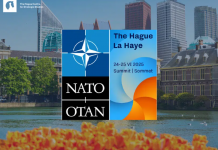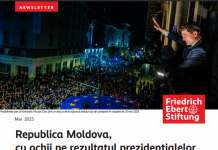The European Union and the Republic of Moldova (hereinafter "Moldova) held today the second meeting of the Association Council under the Association Agreement. The EU and Moldova reconfirmed the common determination to implement their commitments to strengthening Moldova´s political association and economic integration with the EU.
While acknowledging the provisional application of the Association Agreement since September 2014, the Association Council highlighted the forthcoming full entry into force of the Agreement, now that Moldova and all EU member states have ratified it. The Association Agreement is the legal basis upon which Moldova proceeds with its reform agenda and economic modernisation in the years to come. Moldova has submitted the second report on the implementation of the EU-Moldova Association Agenda.
The Association Council acknowledged the importance of solving the current difficulties in Moldova through a constructive dialogue between all political forces in the country, taking into account the expectations of the people of the Republic of Moldova. The EU encouraged Moldova to continue its efforts to pass the necessary laws and reaffirmed its support to Moldova towards these goals. Both parties underlined the importance of dialogue and cooperation with civil society, in particular in the implementation of the Association Agreement, and the need for an enhanced civil society participation in the public policy and decision-making processes in Moldova. Moreover, the Association Council stressed the importance of Moldova pursuing and intensifying a policy that fully engages its entire society.
Tangible results on reforms are necessary to restore trust in Moldova. The Association Council acknowledged the efforts undertaken by Moldova in preparing a clear plan of priority reforms in key areas, comprised in a roadmap that was provided to EU and made public by the Government of Moldova. This detailed roadmap sets clear deadlines for concrete actions until July, in such important areas as cooperation with civil society, from this month; approving and starting implementation of the law package on the justice sector and the prosecution service, as well as bringing new impetus to DCFTA implementation, in March-April; adopting a strategy on public administration reform, by April; improving the business and investment climate; addressing weaknesses in the banking and financial sectors and re-starting cooperation with the IMF; adopting the legislative package on integrity. These reforms ought to include thorough investigation on the banking frauds, reform of the justice sector, as well as depoliticise state institutions, fight against corruption and money laundering, stabilise the financial sector and improve the business and investment climate, including in the energy sector. The roadmap will be a useful tool to foster and monitor the implementation of reforms, for the benefit of the Moldovan society at large.
The Association Council discussed ways of addressing political deadlocks in Moldova, including via a constitutional reform and the implementation of OSCE/ODIHR recommendations on the electoral framework.
The EU reiterated its call to improve the national legislation in order to effectively limit the concentration of media ownership and guarantee pluralism as soon as possible. The EU expressed also its concerns about judiciary and law enforcement agencies lacking independence and called on Moldova to undertake reforms which will effectively ensure the independence, effectiveness, transparency and accountability of the judiciary and of the anti-corruption institutions. The EU welcomed the adoption of a law reforming the prosecution service considering it a step forward and strongly encouraged its faithful implementation, together with the adoption of key laws on the judiciary and fight against corruption without delay. Moldova has reaffirmed the justice sector reform as one of the country’s key-priorities and presented a detailed overview of measures to be taken in the coming months with regard to addressing existing shortcomings and promoting a deep and systemic reform in this area.
The Association Council noted the substantial EU assistance provided to Moldova. The EU called on Moldova to make the best use of this assistance in order to deliver on the ambitious reforms it has committed to under the Association Agreement and the Association Agenda, and reiterated its readiness to continue assisting Moldova including through technical assistance and project support, such as peer-review missions and high level advisers. The Association Council agreed that a clear commitment to establish a comprehensive programme of stabilisation and structural reforms, with the aim to address macroeconomic concerns should allow reaching agreement on a new Cooperation Agreement with IMF.







